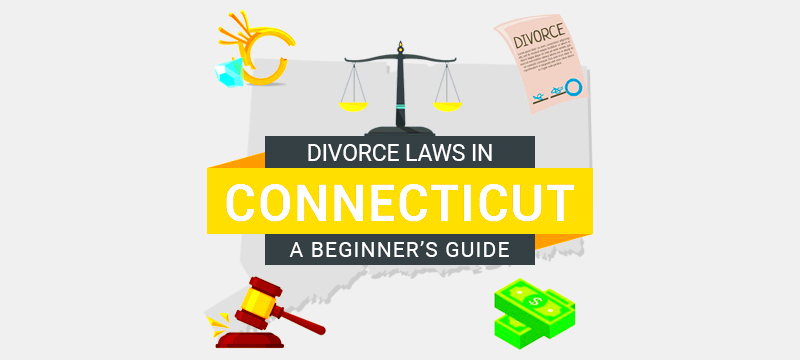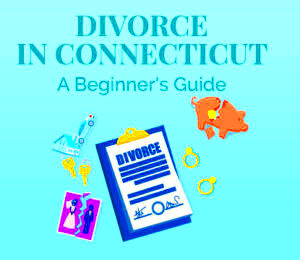Connecticut Divorce Laws and the Impact of Adultery
Divorce can be a challenging and emotional process. In Connecticut, understanding the laws surrounding divorce is essential for anyone considering this path. The state operates under a no-fault divorce system, meaning you don’t need to prove wrongdoing to obtain a divorce. This approach can simplify the process, allowing couples to focus on practical matters like asset division and child custody. As we explore the specifics of divorce laws in Connecticut, we’ll also discuss how factors like adultery can influence the proceedings.
Understanding Adultery in Connecticut

Adultery is defined as a voluntary sexual relationship between a married person and someone who is not their spouse. In Connecticut, adultery can have significant implications during divorce proceedings. It’s crucial to understand how the state views this issue:
- Emotional Impact: Adultery can deeply affect the emotional dynamics of a marriage, often leading to resentment and anger.
- Legal Considerations: While Connecticut allows no-fault divorces, proving adultery can still influence outcomes related to asset division and custody.
- Proof Required: If you claim adultery in court, you must provide evidence, which could include witness testimonies or documentation.
Understanding these factors can help you navigate the legal landscape more effectively.
Grounds for Divorce in Connecticut

In Connecticut, couples can file for divorce based on several grounds, including:
| Grounds | Description |
|---|---|
| No-Fault | Claims that the marriage has irretrievably broken down without hope of reconciliation. |
| Adultery | Proving that one spouse engaged in sexual relations outside the marriage. |
| Desertion | One spouse leaves the other without consent for at least a year. |
| Extreme Cruelty | Emotional or physical harm inflicted by one spouse on the other. |
Choosing the appropriate grounds for your divorce can impact the proceedings. Consulting with a legal professional is advisable to determine the best course of action for your situation.
How Adultery Affects Divorce Proceedings
Adultery can complicate divorce proceedings in various ways, even in a no-fault state like Connecticut. While you don’t need to prove wrongdoing to get divorced, the fact that one spouse was unfaithful can still impact the case significantly. Here’s how:
- Emotional Considerations: The emotional fallout from adultery can lead to increased conflict during the divorce process. This heightened tension may make negotiations more challenging.
- Impact on Negotiations: The spouse who was cheated on may seek more favorable terms as a form of compensation for the betrayal. This can lead to disputes over asset division and other settlements.
- Legal Proof: If adultery is presented as a ground for divorce, it requires substantial proof. This might include testimony from witnesses or other evidence, which can prolong the process.
Ultimately, while adultery doesn’t automatically decide the outcome, it can certainly influence the dynamics and decisions made throughout the divorce.
Division of Assets and Adultery
When it comes to dividing assets in a divorce, Connecticut follows the principle of equitable distribution. This means that assets are divided fairly, though not necessarily equally. Adultery can play a role in this division:
| Factors Influencing Division | Description |
|---|---|
| Marital vs. Non-Marital Assets | Only assets acquired during the marriage are subject to division, not those owned prior. |
| Conduct of Both Parties | While Connecticut is a no-fault state, a spouse’s misconduct, such as adultery, may be considered in the division of assets. |
| Economic Contributions | Each spouse’s contribution to the marital estate, including homemaking and child-rearing, is considered. |
Adultery can lead to claims for a larger share of the marital property, especially if one spouse can prove that the other’s actions caused financial or emotional harm.
Child Custody Considerations in Cases of Adultery
When a couple with children divorces, the court prioritizes the best interests of the child. While adultery may not directly determine custody, it can still influence the court’s decision:
- Parenting Ability: The court may assess how the adultery affected the relationship between the parents and their ability to co-parent effectively.
- Stable Environment: A stable home environment is crucial for children. If adultery led to instability, this might impact custody decisions.
- Emotional Impact on Children: The court considers the emotional well-being of the children involved. If adultery resulted in significant conflict, this could be a concern.
Ultimately, the goal is to ensure that the children’s best interests are met, even when dealing with the complexities of adultery.
Legal Representation and Resources in Connecticut
When navigating the complexities of divorce, especially in cases involving adultery, having the right legal representation is crucial. Connecticut has many resources available to assist individuals throughout this challenging process. Here are some key options:
- Family Law Attorneys: Hiring a lawyer who specializes in family law can make a significant difference. They understand the intricacies of divorce proceedings and can provide tailored advice based on your situation.
- Legal Aid Services: For those with limited financial means, organizations like Connecticut Legal Services offer help with legal representation, including guidance on divorce and custody matters.
- Court Resources: The Connecticut Judicial Branch website provides valuable information about the divorce process, including forms and guidelines for filing.
- Mediation Services: Mediation can be a useful alternative to litigation, allowing couples to resolve disputes amicably. Connecticut offers various mediation services that help facilitate discussions between spouses.
Utilizing these resources can empower individuals to make informed decisions and navigate the legal landscape more effectively.
Conclusion
Understanding Connecticut divorce laws and the impact of adultery is essential for anyone facing this challenging situation. While divorce can be an emotional and complex journey, being informed about the legal framework can help you navigate the process more smoothly. From knowing the grounds for divorce to understanding how adultery can affect asset division and child custody, having the right knowledge and legal representation can make all the difference. As you move forward, remember that support is available, and you don’t have to face this journey alone.
FAQs About Connecticut Divorce Laws and Adultery
Here are some common questions regarding divorce laws in Connecticut, particularly relating to adultery:
- Is adultery a ground for divorce in Connecticut? Yes, while Connecticut allows for no-fault divorces, adultery can also be cited as a ground for divorce.
- How does adultery affect asset division? Adultery can influence asset division, as a court may consider the conduct of both spouses when deciding on a fair distribution.
- Can I get custody if my spouse committed adultery? Adultery itself does not automatically determine custody. The court focuses on the best interests of the child when making custody decisions.
- Do I need to prove adultery in court? If you cite adultery as a ground for divorce, you must provide evidence to support your claim.
These FAQs aim to clarify some of the common concerns people have when dealing with divorce in Connecticut, especially in cases involving adultery.


